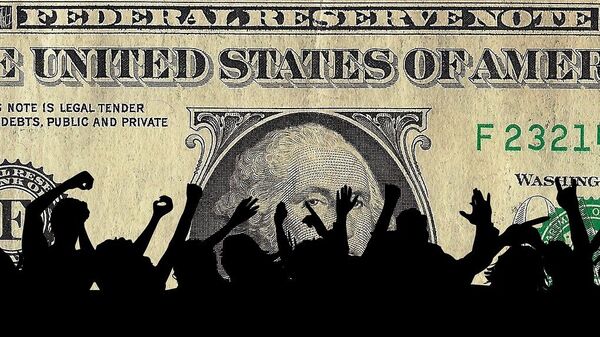Part of the proposal, which the Republicans plan to present to the president, could see a new "boarder adjustment" system introduced, which would call on taxing US companies' domestic sales and imports, while exempting their exports.
Toyota Motor said will build a new plant in Baja, Mexico, to build Corolla cars for U.S. NO WAY! Build plant in U.S. or pay big border tax.
— Donald J. Trump (@realDonaldTrump) January 5, 2017
This would mean that if US businesses decided to import goods from the EU, they would be taxed for this, however if they exported items they would avoid any penalties.
If the US adopted this new system, it would be a major overhaul of the US taxation, according to tax experts and something that the EU is less than impressed with.
Members of the World Trade Organization (WTO), an intergovernmental body which regulates international trade, has warned that if the US makes the tax change, it would lead to a major challenge to the global trading system at a time when its most influential member is tilting towards protectionism under Trump.
Jyrki Katainen, the European Commission vice-president who oversees EU trade policy, said in a recent interview that at all costs, Europe wants to avoid a trade war with the US as it would be "disastrous" for the world economy.
Katainen made it clear however, that the EU would have no other option but to act against the US, whether it related to border tax or the erection of any other trade barriers, in order to protect the interests of the EU.
"If somebody is behaving against our interests or against international rules in trade, then we have our own mechanisms to react," Katainen said in a recent interview.
"We have all the legal arrangements within EU, but we are also part of global arrangements like the WTO and we want to respect the global rule base when it comes to trade," he added.
In an interview with the Financial Times, Chad Brown a WTO trade dispute expert said that a defeat in such a case could see around US$385 billion a year in trade retaliation against the US.
Some countries have begun to question whether this overhaul in the US corporate tax system is part of Trump's protectionism and anti-globalization stance, which focuses on shielding a country's domestic industries from foreign competition by taxing imports.
According to sources, China has already started to examine whether Trump's economic policies will lead to higher US tariffs, which could make cross-border trade harder between the US and Asian countries.
On February 15, Trump is scheduled to meet with the chief executive officers of eight large retailers, including Target Corp, Best Buy Co., Inc. and J.C. Penney Company Inc. to discuss tax reform and infrastructure improvements.
According to BBC business correspondent Michelle Fleury, a key discussion point at the meeting will be on the proposed plans to tax US companies who import goods from other countries, as most US retailers believe this will not be good for their overall profits.
Nordstrom and Marmax didn't make the cut. Trump to Meet with Retail CEOs on Border Adjusted Tax https://t.co/4aZuAlN6b5 via @BoF
— Trent MacLean (@trent_maclean) 15 February 2017
A spokesperson for the WTO told Sputnik that currently there is no legislation as yet that has been introduced by the US, however there has been talk and discussions around changing aspects of the corporate tax system, which could impact trade with other countries.





